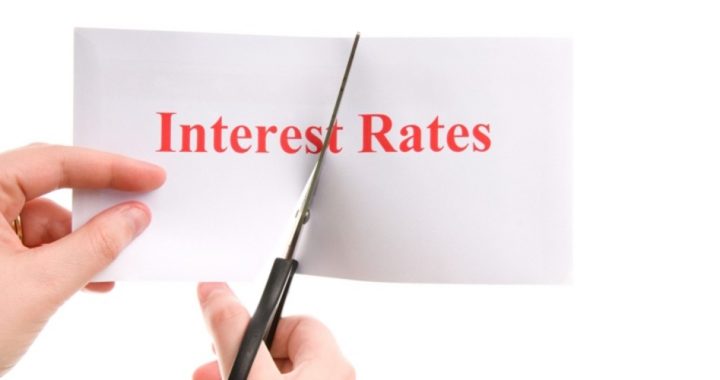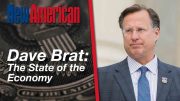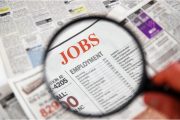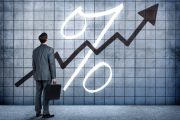
Podcast: Play in new window | Download ()
Subscribe: Android | RSS | More
It all began when Federal Reserve officials opened the door last month to the possibility not only that further interest-rate increases were off the table but that a reversal of last December’s highly controversial rate increase was now part of the conversation.
On Friday, President Trump’s National Economic Council Director Larry Kudlow told Bloomberg Television that “they should take back [last December’s] rate hike. With a weak global economy, taking out an insurance policy is not a bad thing.” He added that inflation [sic: price increases in goods and services in the economy] is “way below the Fed’s target … and that’s the reason they should take back the interest rate hike.”
To stave off criticism that he was meddling, Kudlow added, “I’m not encroaching on Fed independence. I’m [just] reading the market tea leaves.”
Those tea leaves were shuffled on Friday with a robust jobs report for June that exceeded every forecast. Since January 2017, the Trump economy has added five million jobs, with nearly a quarter of a million being added last month. But a strong jobs market notwithstanding, there is some apparent fraying around the edges of the U.S. economy. The total weekly hours worked has come off its recent high, while overtime hours in the manufacturing sector have been running below 2018 levels for the last five months.
Corporate profits for all U.S. companies set a record at $2.3 trillion back in 2018 and forward-looking estimates are coming in just slightly below that for 2019. U.S. auto sales in China have continued to slump: For the second quarter GM reported a 12-percent drop, while Ford’s vehicle sales in China fell by nearly 22 percent. That was on top of GM’s skid of 17 percent in the first quarter and Ford’s drop of nearly 36 percent.
And then there’s the Cass Freight Index, which first turned negative last December and has steadily declined every month since. From Cass’s May report: “We place our trust in the simple notion that the movement of tangible goods is the heartbeat of the [U.S.] economy … and with the 6 percent drop in May, we see [our] shipments index as going from ‘warning of a potential slowdown’ to ‘signaling an economic contraction.’”
Cass is seeing severe declines in international freight volumes, especially in China and the ongoing swoon in railroad volumes in the United States, especially in autos and building materials. It noted a concurrent decline in the pricing for transportation services as confirming its negative outlook.
Another little-noted Wall Street indicator is flashing red as well: the yield on the 10-year Treasury on Friday was 2.03 percent, well below the Fed Funds rate dictated by the central bank of between 2.25 and 2.50 percent. This indicates how far the Fed is out of sync with the markets.
Fed Chair Jerome Powell is late to the party, but said on Friday that “the global risk picture has changed just in the last six to eight weeks … it’s about concerns about global growth.” This was reiterated by a report the Fed issued on Friday: “Since the beginning of May the tenor of incoming information on economic activity, on balance, has become somewhat more downbeat and uncertainties about the [U.S.] economic outlook have increased.”
Powell himself now thinks that Kudlow may be right about that “insurance policy,” adding on Friday, “This is fairly widely accepted. If you see weakness, it’s better to come in earlier rather than later.” Such a move, if it occurs following the Fed’s Board of Governors’ two-day meeting starting July 30, should please the president. Trump has been highly critical of the Fed’s moves in restraining the growth of the U.S. economy, even suggesting at one point that he made a mistake in appointing Powell as head of the central bank. On Friday he stated that if the Fed did lower interest rates the economy would take off “like a rocket ship.”
A quarter-point move, in the grand scheme of things, isn’t a big deal, except for the psychological impact such a move makes. It would show not only how sensitive the Fed is to market and economic pressures, but to political ones as well.
Wall Street is holding its breath for confirmation coming from Powell during his two days of congressional testimony scheduled to begin on Tuesday. It’s also waiting for the publication of the minutes of the June Fed meeting for additional clues.
That is the single most severe handicap any central bank faces: trying to direct an economy by looking in its rear-view mirror.
Image: RichHobson via iStock / Getty Images Plus
An Ivy League graduate and former investment advisor, Bob is a regular contributor to The New American primarily on economics and politics. He can be reached at [email protected].
Related article:
Economy Surprises to the Upside: 224,000 New Jobs in June; 335,000 Re-enter the Workforce




